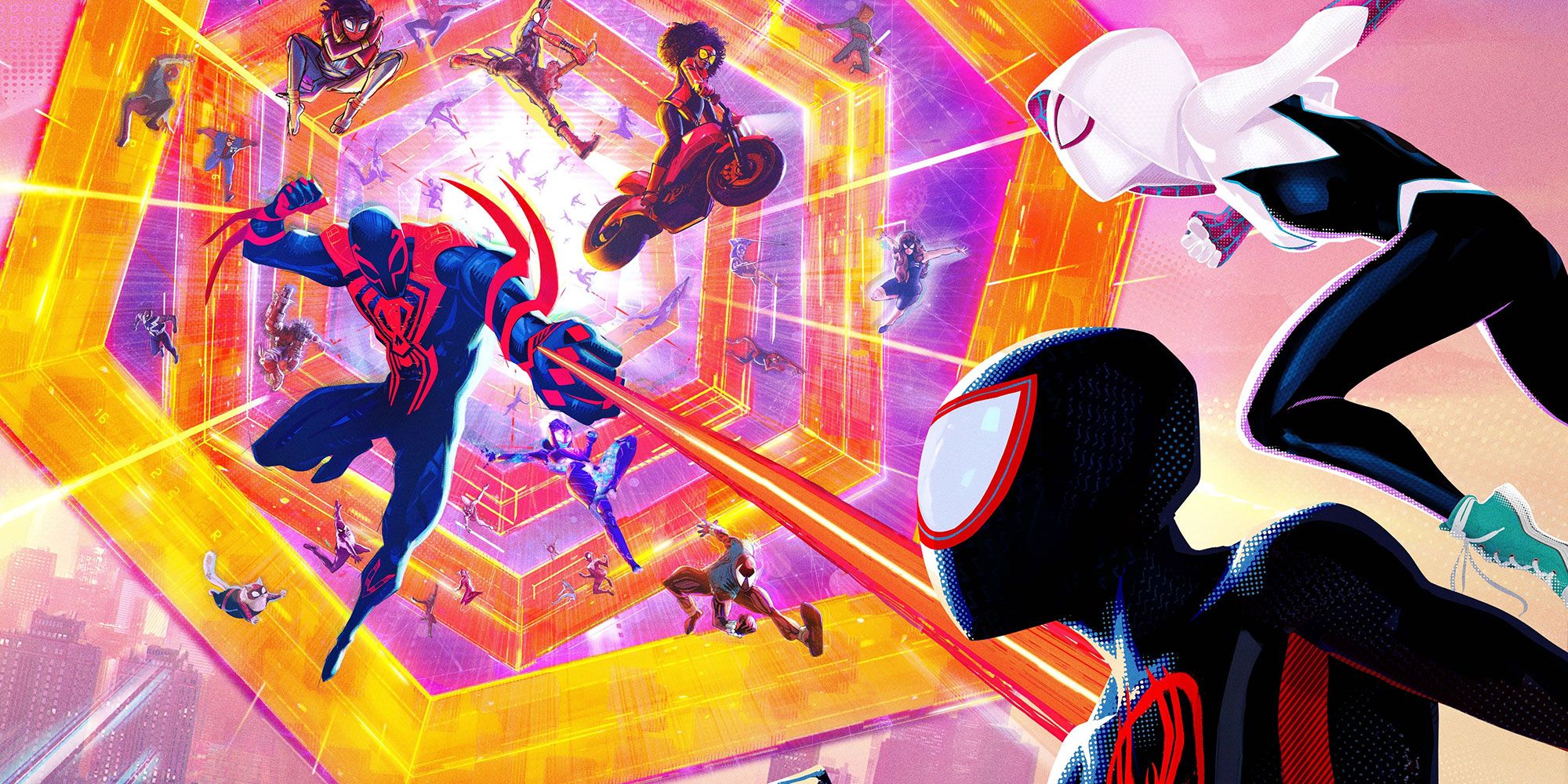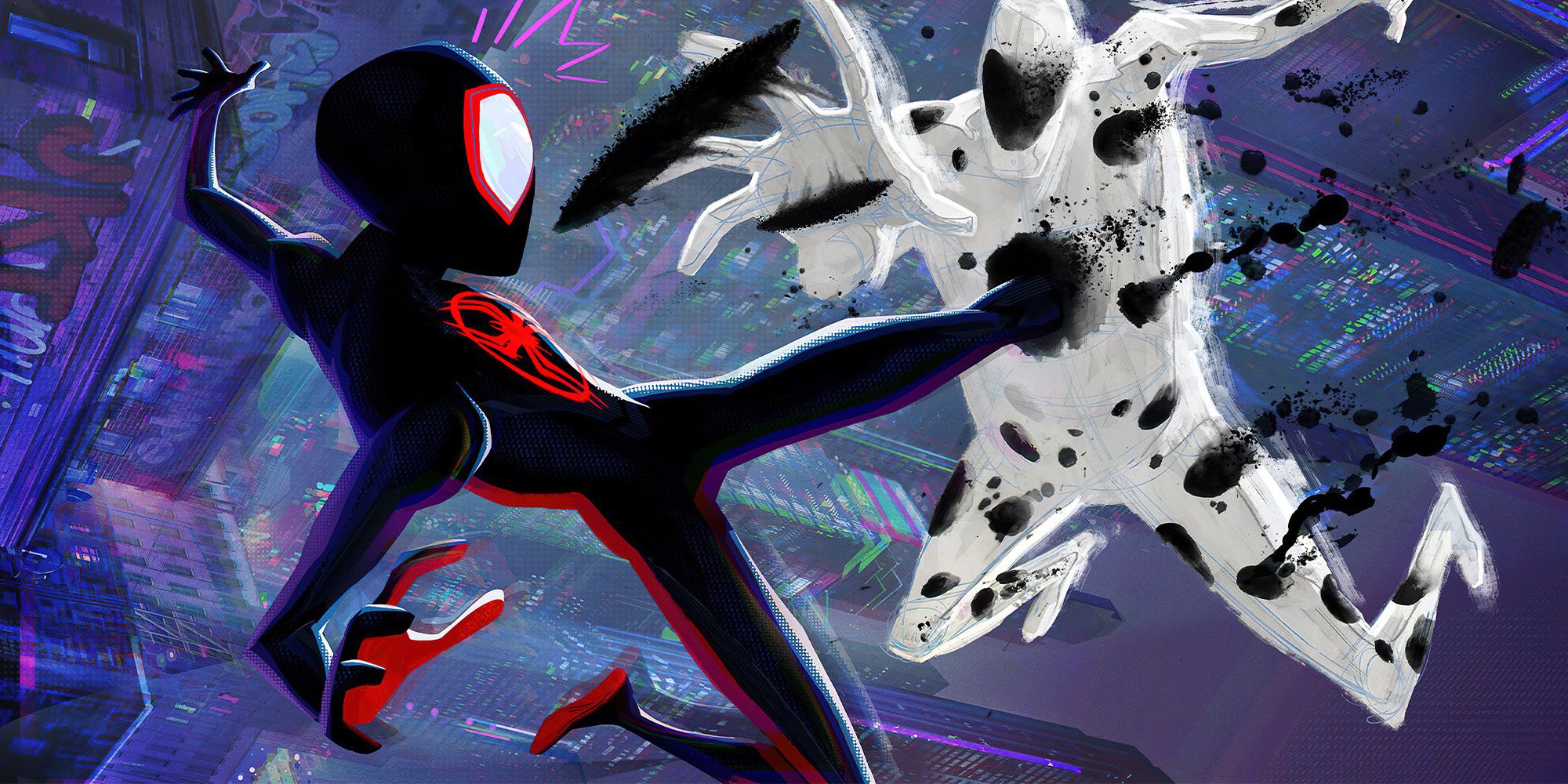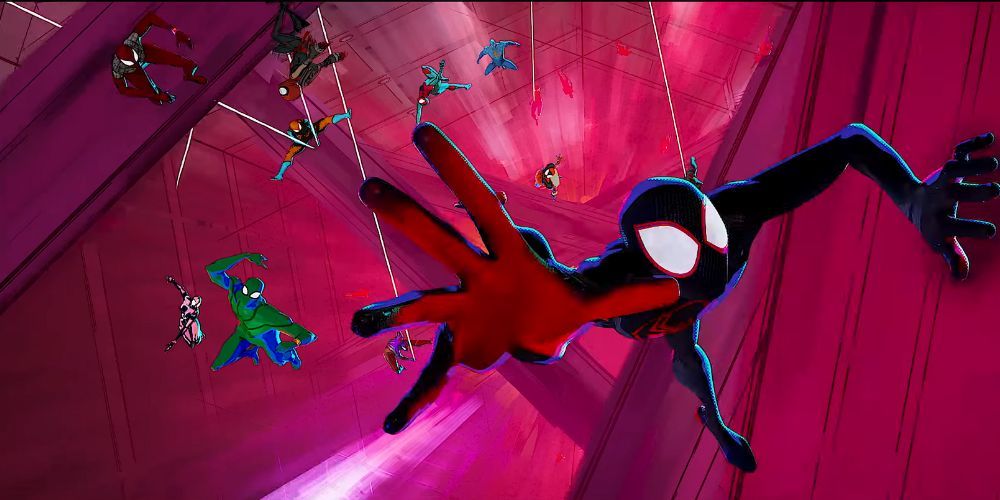Was it just me, or did it take a while for Across the Spider-Verse to get a digital release? Not only did Spider-Verse come to Disney+ a couple of weeks ago, but it came with a fresh batch of changes, both audio and visual, that separate it from the theatrical release. This is in line with the buzz the film got whilst it was in cinemas for having multiple versions; depending on where you watched it, the version you saw could have had unique dialogue or animation—like a different blink-and-you'll-miss-it pose or a variant line from Ben Reilly. Nothing big, but it leaned into the multiverse concept nicely, as if the multiple editions alluded to the film's story occurring in different universes.
Now there's been both controversy and praise toward the tweaks in the digital release, what is now the de-facto definitive version of the movie, but what I wanna talk about is how this is all getting a bit... silly. Not only is it yet another exercise in its filmmakers not being able to leave well enough alone, but it opens up some interesting questions about film archiving: what happens to the theatrical cut (or 'cuts' in this case)?
The reasoning behind all these variants is explained in a GamesRadar interview with writer/producer duo Phil Lord and Chris Miller, with Miller saying: "Let’s do the best possible version we can. Because it’s a multiverse movie, it’s like there’s a multiverse of the movie—that was really the reasoning behind it... It was trying to make the best possible version that everyone was going to be the proudest of" He also said that the ideas for these touch-ups came from "Certain crew members—people in the sound department or on the animation team".
So let's talk about how the film has been 'patched' in the way a videogame might be. I've looked over all the tweaks I can find and most of them are audio changes. These include changing the take used in a scene (such as changing the take for Spot's monologue about his backstory to one where he sounds calmer), cutting dialogue altogether (such as removing dialogue that implied Gwen was worried about Miles' safety whilst she was searching through rubble for him) or bringing in new dialogue (like a new line for Spot where he remarks that it 'would not be good' if his experiment atomized the building he was in, making him seem a bit less murder-happy). There are also a handful of visual changes, like the removal of some text boxes and a change in Prowler Miles' character design that gives him extended braids and more facial outlines.
All of these changes are minor—it's not like any new scenes have been added or that the trajectory of any characters has changed—but that doesn't mean they don't have an impact. For me the removal of some dialogue here and there enhances the experience by letting actions speak for themselves, like axing Gwen's quip when she turns off a police radio. Changing takes or lines to put a character in a different light can also shift how we see a character, like those aforementioned edits to Spot making him more sympathetic.
On the other hand, it's pretty far into the weeds; unlike 2019's Cats (which got a similar 'patch' to spruce up visual effects), these are some more subjective tweaks that some may like, others might not. Remember, this is a film that's already beloved by about everyone out there. It wasn't in dire need of all this tinkering.
What happens to that old version anyway? I did some digging and it seems that there's no disc version with a theatrical cut on the bonus features. Obviously, these old scenes exist online but they're not exactly high-quality—and it would take only a wayward copyright strike or two to have Across The Spider-Verse's original cut teeter on the edge of becoming lost media. I strongly believe in as much media as possible being archived for future generations to view and learn from. Again, this instance isn't a particularly big deal, it's just that this situation creates a consumer dilemma that's pretty new.
Whether you like these changes or not, you're out of luck if you want to see the original cut—which itself was already split into multiple versions. The constant tampering with a film that is already one of the most acclaimed superhero films of all time is only serving to confuse audiences and fix what, ultimately, wasn't broken. It would make more sense for these changes to come as part of a director's cut or bonus features—hell, they could even have it be an interactive feature where viewers can change which version they're watching to keep up the multiverse hype.
It kind of leads to the question: when can a project be left alone? Across the Spider-Verse is already a critical darling and box-office powerhouse, I doubt anyone was clamoring for these tweaks. It's all well and good to want your film to be the best it can possibly be (which is certainly the predominant angle now that other cuts are difficult to find), but there's a lot of value in letting something release warts-and-all—you can't keep polishing a piece of art forever.



